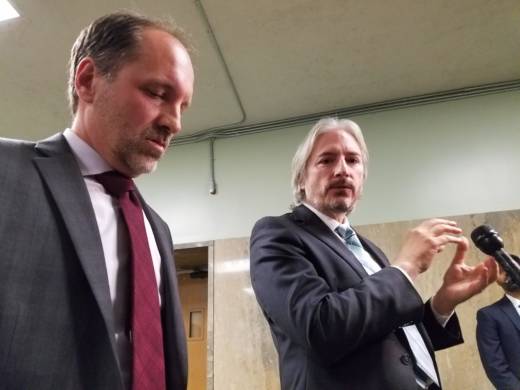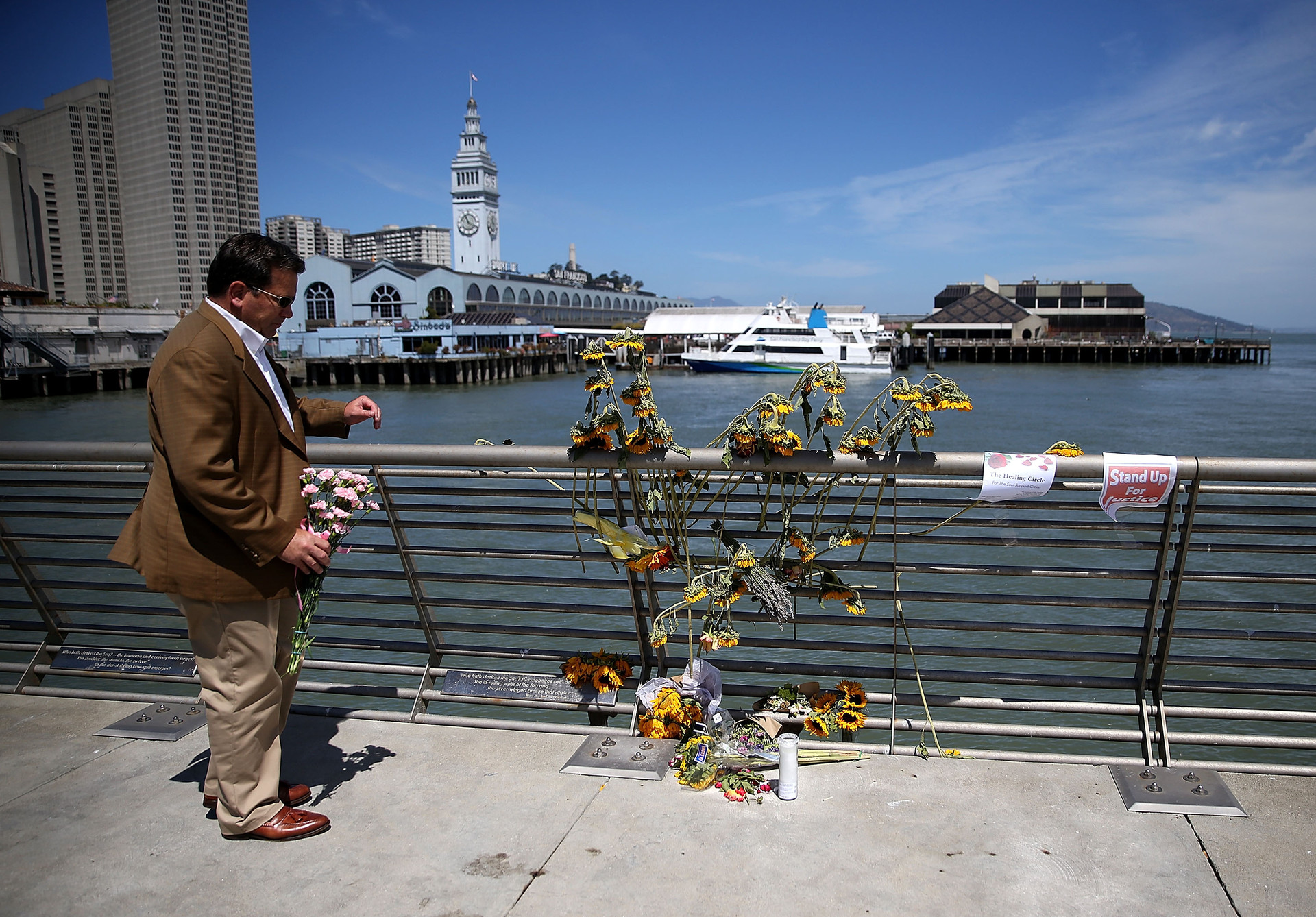Whether or not Woychowski will testify is still being litigated, and two federal attorneys were present at a hearing in San Francisco Superior Court on Friday, though they did not address the court and declined to comment after. The matter may be heard in open court next Friday.
The attorneys for the U.S. Department of Justice and the Department of the Interior argued in a July 13 letter that, in seeking to subpoena Woychowski’s testimony, the defense skirted procedure and case law that requires federal permission for an employee to testify in a state court case.
“[I]t is the Department’s general policy not to allow its employees to testify or to produce Department records either upon request or by subpoena,” the letter says, citing Department of the Interior regulations.
State and federal attorneys speaking on the condition of anonymity said the procedure the U.S. government is requiring is routine and in place to ensure federal employees are authorized to testify about whatever they’re subpoenaed for.
“Even assuming the BLM officer’s testimony is relevant to the murder charge here, there was no need for defense counsel’s underhanded tactics that caused public humiliation of an officer who happened to be the victim of an auto burglary that is still an open police investigation,” Garcia’s motion says. “Defense counsel disregarded a long-established procedure for the appearance in state court of federal agents, and then as if by fiat, sought the arrest of a federal law enforcement officer anyway.”
After the federal government indicated Woychowski would not comply with the state court subpoena, Lopez Sanchez’s defense filed a “body attachment,” which could result in arrest to produce a witness for trial.
They say the law in question contains an exception for criminal cases, like the murder trial, and the federal government should comply with the court’s order.
“The federal government often articulates things that are wrong,” said Chief Deputy Public Defender Matt Gonzalez, one of Lopez Sanchez’s defense attorneys. “They have an attitude about the state courts and their [federal] supremacy that is in effect ignoring the fact that one of their employees not only violated their own agency rules but what is now state law, and clearly played a role in the outcome.”
Last year a state law passed — a year after Steinle was killed– that makes it an infraction carrying a $1,000 fine when law enforcement officers leave their guns unsecured.
A defense declaration filed Friday in response to the prosecution’s request to seal its witness list says defense attorneys repeatedly asked prosecutors if the subpoena for Woychowski’s testimony should be kept secret.
“Garcia expressly stated she did not want to file motions under seal,” Gonzalez’s declaration says. “Garcia actually said she did not believe the media would follow the case very closely, as it was an old story. This surprised me, and I told her I did not agree with that assessment.”
The declaration continues: “Garcia said she did not want motions done under seal and expressed no concern as to whether the BLM officer was publicly named.”
Nevertheless, the defense did not publicize Woychowski’s name, and requested the court keep the subpoena under seal. The defense’s motion and judge’s order for the subpoena were discovered in a routine check on the case by KQED.
“Up to that time the defense had not released his name, despite numerous media requests, until the press discovered it on their own,” Gonzalez’s declaration says. “I understand that the reporter who broke the story learned of the subpoena, four days after it was filed, by reviewing the case file.”
Read the prosecution’s motion, followed by the defense’s response, below.

